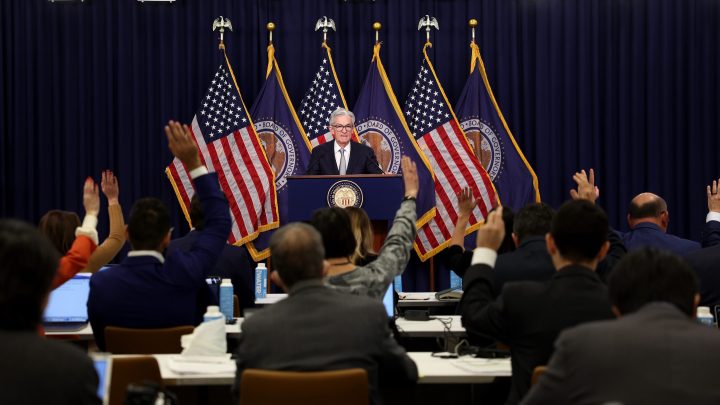
Just how much can the Fed affect financial conditions in the economy?
Just how much can the Fed affect financial conditions in the economy?

As the Federal Reserve tries to fight inflation, it has to take into account financial conditions out in the economy. Sometimes, financial conditions can do some of the Fed’s work for it. Sometimes, they don’t.
Asking about financial conditions is really just asking how much breathing room there is in the economy — like, if you don’t have the cash you need right this second, how easy or hard is it to go borrow some?
“Many businesses obviously borrow from banks, some go straight to the financial markets,” said Carl Tannenbaum, chief economist at Northern Trust. “Same thing for consumers. We use our credit cards, we get home mortgages.”
If you can control that ability to go out and borrow, you control the economy. You can help it grow, you can slow it down, you can control inflation.
But the Fed does not actually totally control financial conditions. It tries — It would probably love to! — But it doesn’t. Reality gets in the way.
“At the moment, for example, bank lending standards have been relatively tight for most of this year in the wake of the banking crisis that we had last spring,” said Tannenbaum. “So it is quite a bit harder for firms and individuals to get bank credit than it was 12 months ago.”
The Fed didn’t do that. And there’s gas prices — they rise or fall, affecting people’s budgets and willingness to borrow. Fed’s got nothin’ to do with that. Stock prices can rise or fall, making it easier or harder for some businesses to raise money. No Fed there. And long term bond yields — these are what affect mortgages and car loans — can rise or fall, and they’re set by the bond market.
“Then all of a sudden, you are either getting more restrictive effective monetary policy in the system, even though the Fed hasn’t necessarily acted,” said Simon Harvey, head of FX analysis at Monex Europe and Monex Canada.
One of the few things the Fed can control directly is short term interest rates. But it can try to influence the markets that control long term interest rates — it’ll literally tell them that it’ll keep doing whatever it’s doing now. That would affect pricing of long term bonds. But sometimes markets don’t listen, cause they don’t buy it.
“And this is the kind of game that we have to play in financial markets,” Harvey said.
If that sounds messy that’s because it is, and that’s why Harvey says predicting where interest rates will end up is as much an art as it is a science.
There’s a lot happening in the world. Through it all, Marketplace is here for you.
You rely on Marketplace to break down the world’s events and tell you how it affects you in a fact-based, approachable way. We rely on your financial support to keep making that possible.
Your donation today powers the independent journalism that you rely on. For just $5/month, you can help sustain Marketplace so we can keep reporting on the things that matter to you.

















